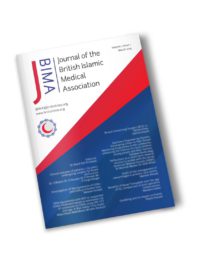
Dear Editor,
COVID 19 pandemic took the whole world by surprise and left policy makers and clinicians with a series of ethical dilemmas(1). The unprecedented number of hospital admissions following COVID 19 infections had exhausted the previously struggling healthcare systems globally. The decision to prioritise the vastly expanding medical need against patients who already suffered from debilitating disease (cancer patients for example) are few among many who had to pay an expensive price debited from their health; unfortunatelt, not all these patients were able to afford this.
Frameworks and flowcharts have been devised to help clinicians prioritise hospital admissions (1)(2). The basis for this selection is a matter of intense ethical questioning. Among the highlights of selection criteria are the likelihood of survival following this hospital admission and the overall long-term survivability. Although extremely difficult to predict especially with a new disease that we still know so little about, it represents a huge responsibility on the decision makers when it’s a matter of life or death. These lists however are not limited to clinical based decisions, but it also extends to a shocking level of de-prioritise patients who have “particular narrow social utility to others in a pandemic”(1).
Attempts to obtain an Islamic perspective to tackle these dilemmas have been initiated by various scholars. Padela et Al (3) have explored the conflicting concepts of prioritising patients with higher societal input with the Islamic notion of almaslaha which might imply that those, if survived, can help save more lives. This contradicted with the concept of universal human karama which calls for equal treatment of all human beings regardless of their social status or benefit as their value is equally sacred(4).
The Islamic bioethical approach to this crisis can be constructed based on religious and historical evidence(5). Further engagement of religious leaders in the process of delineating the framework for individual Muslims in the face of this dilemma is beneficial.
References
- Robert R, Kentish-Barnes N, Boyer A, Laurent A, Azoulay E, Reignier J. Ethical dilemmas due to the
Covid-19 pandemic. Ann Intensive Care. 2020;10(1):84. - White DB, Lo B. A Framework for Rationing Ventilators and Critical Care Beds During the
COVID-19 Pandemic. JAMA. 2020;323(18):1773-4. - Padela AI, Ali M, Yusuf A. Aligning Medical and Muslim Morality: An Islamic Bioethical Approach to Applying and Rationing Life Sustaining Ventilators in the COVID-19 Pandemic Era. Journal of Islamic
Ethics. 2021:1-36. - Kamali MH. The Dignity of Man: An Islamic Perspective: Islamic Texts Society.
- Al Eid NA, Arnout BA. Crisis and disaster management in the light of the Islamic approach: COVID-19 pandemic crisis as a model (a qualitative study using the grounded theory). J Public Aff. 2020:e2217

